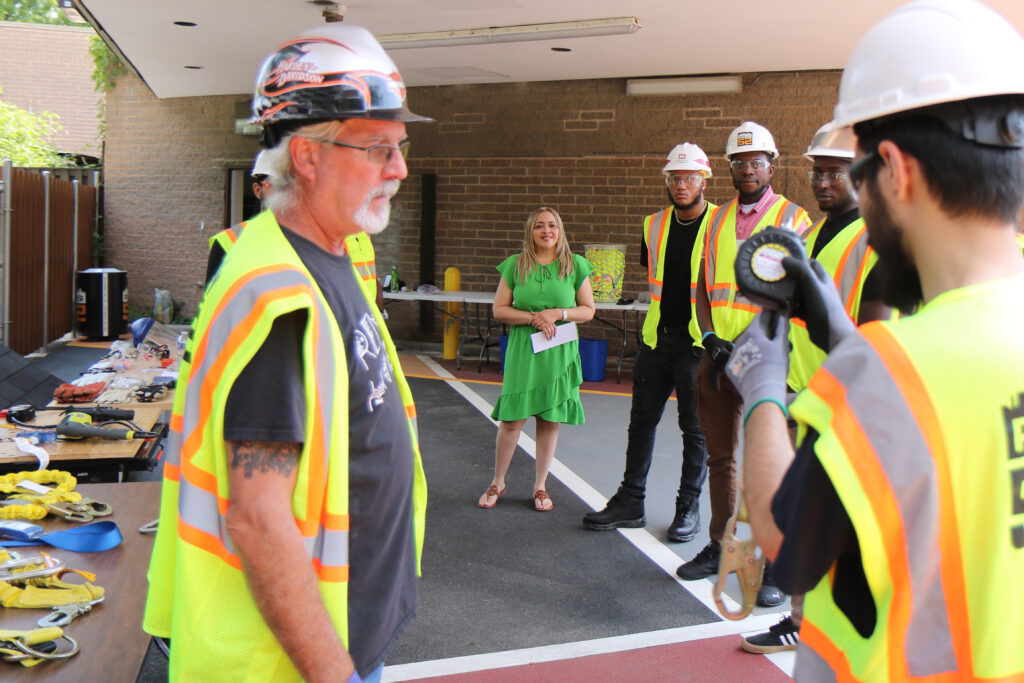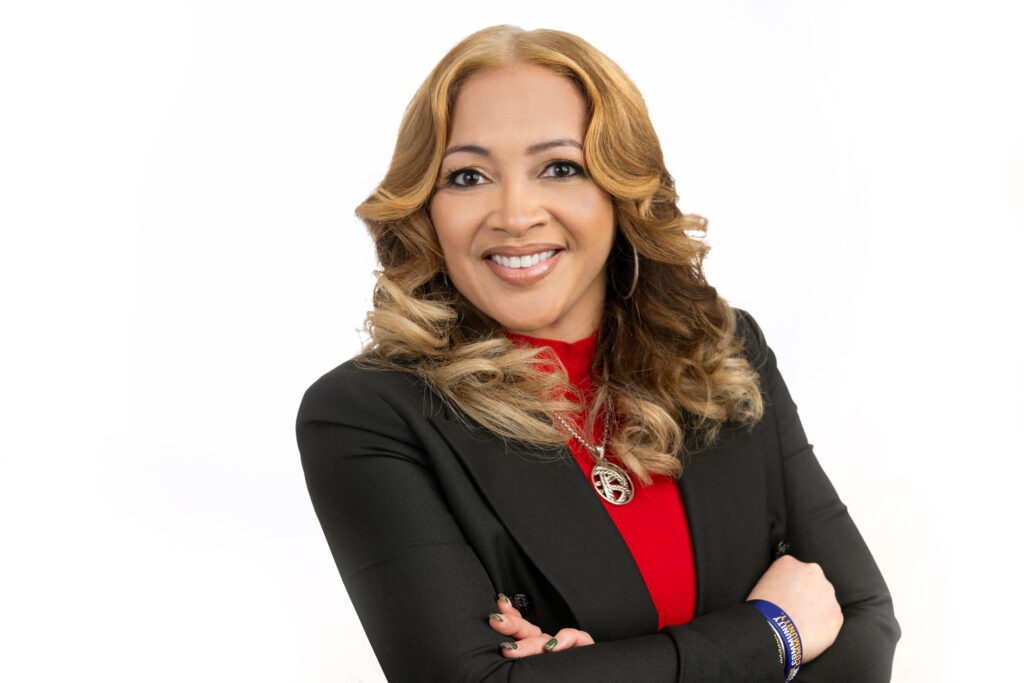 In today’s world, access to reliable and sustainable energy sources is essential for the well-being and prosperity of communities. However, not everyone has equal access to these resources. Power52 Foundation is on a mission to bridge the divide and ensure that everyone has access to clean energy. Our efforts make a real impact on the lives of underserved communities and help build a more sustainable future for us all.
In today’s world, access to reliable and sustainable energy sources is essential for the well-being and prosperity of communities. However, not everyone has equal access to these resources. Power52 Foundation is on a mission to bridge the divide and ensure that everyone has access to clean energy. Our efforts make a real impact on the lives of underserved communities and help build a more sustainable future for us all.
Power52 operates in three key energy access domains, vital for nurturing sustainable communities. First, we provide comprehensive renewable energy education and solar PV training to empower individuals in underserved areas. Through hands-on training and classroom instruction, participants gain expertise for the growing renewable energy sector. Second, we are committed to job placement within the renewable energy industry, ensuring acquired skills lead to employment, enhancing economic prospects for both individuals and communities. Third, our strong community engagement promotes renewable energy education in marginalized areas, empowering them to seize clean energy opportunities and drive community-driven initiatives for economic growth and cohesion, contributing to a brighter, more sustainable future.
Championing Community-Led Resilience
In October 2016, Power52 Foundation embarked on a transformative journey with the Partnership for Resilient Communities (PRC) project through the Institute for Sustainable Communities (ISC). This collaboration has yielded remarkable results, including the construction of the nation’s first resilience hub in Baltimore City’s Perkins Homes community.
The development and build of this resilience hub is one of Power52 Foundation’s standout achievements in partnership with ISC as a member of PRC. These hubs are innovative community centers designed to serve as focal points for resilience-building efforts. They provide critical services and resources during emergencies, such as natural disasters, and promote community well-being on a day-to-day basis.
Since the construction of our first resilience hub in 2018, Power52 Foundation has gone on to build four additional hubs in Baltimore City, with continued support from ISC. Notably, Power52’s work has influenced other PRC member organizations, like United Parents Against Lead, who developed the first solar-powered community resilience hub in Petersburg, Virginia. The impact of this collaboration is felt far beyond Baltimore, spreading to communities across the country.
ISC’s commitment to engaging local people and working with grassroots organizations like Power52 Foundation underscores their dedication to making a difference. ISC’s holistic approach, encompassing technical assistance, convenings, mentorship, and more, empowers organizations like Power52 Foundation to tackle critical issues, including:
- Job Training: Promoting economic empowerment and sustainable lifestyles.
- Access to Fresh Food: Extending lives through healthier choices.
- Resilience Hubs: Providing access to clean energy.
- Community Solar: Reducing the carbon footprint to preserve our planet.
- Education: Raising awareness of individuals’ roles in building a sustainable future.
The community-led approach to climate equity and resilience work, as facilitated by PRC holds immense significance for Power52 Foundation and the communities it serves. Specifically, this approach aligns seamlessly with Power52’s mission of empowering underserved communities to take control of their energy futures. It places the power of decision-making and action directly in the hands of the community members themselves, ensuring that their unique needs and aspirations are at the forefront of resilience initiatives. With that said ISC uses this same approach in supporting organizations serving on the front lines of energy justice the autonomy to create programming in which they’ve found to be effective in reaching the communities that they serve. This approach allows organizations to take control of how they impact our underserved communities ensuring that they are included in the new green economy which aids in them securing their energy futures.
One of the primary benefits of community-driven leadership is its ability to foster a sense of ownership and agency among community members. When residents actively participate in shaping the strategies and solutions that affect their lives, they become more deeply invested in the outcomes. This not only strengthens community cohesion but also leads to more effective and sustainable projects.
Moreover, community-driven leadership enhances the responsiveness of initiatives to the specific challenges and vulnerabilities faced by each community. It allows for the tailoring of solutions to address local circumstances, whether it’s the development of resilience hubs or renewable energy training programs. This approach ensures that the solutions are not one-size-fits-all but are uniquely adapted to the community’s needs, culture, and context.
Investing in Community Education and Job Accessibility
Earlier this year, Power52 achieved a significant milestone by securing a grant from the U.S. Department of Energy, which paved the way for an ambitious and transformative initiative known as Partners Offering Workforce, Energy, Resilience, Solar, Equity, & Training Opportunities (POWERSETO).
 At the heart of POWERSETO’s mission is the scaling and expansion of the highly successful Power52 Energy Institute, which holds the distinction of being Maryland’s first clean energy private career school specializing in solar PV installation, accredited the National Center for Construction Education and Research and approved by the Maryland Higher Education Commission. The institute’s expertise in renewable energy education forms the bedrock of the POWERSETO initiative.
At the heart of POWERSETO’s mission is the scaling and expansion of the highly successful Power52 Energy Institute, which holds the distinction of being Maryland’s first clean energy private career school specializing in solar PV installation, accredited the National Center for Construction Education and Research and approved by the Maryland Higher Education Commission. The institute’s expertise in renewable energy education forms the bedrock of the POWERSETO initiative.
POWERSETO will provide a comprehensive 16-week training program designed to equip individuals with the skills and knowledge needed to thrive in the solar and renewable energy workforce. Participants receive 320 hours of in-depth classroom instruction covering the latest industry practices, cutting-edge technology, and sustainable energy solutions. This foundational knowledge empowers participants to excel in their future careers. Participants will also earn industry-recognized credentials and certifications, which boost their employability and open a wider range of job opportunities.
Power52 recognizes that holistic support is essential for success, therefore, participants benefit from wraparound services, including mentorship, counseling, and career guidance, ensuring that they are fully prepared to enter the workforce.
As the renewable energy industry continues to expand, so does the demand for skilled workers. POWERSETO, with the support of the U.S. Department of Energy grant, is well-positioned to meet this growing demand. By expanding recruitment efforts and adding project sites, the initiative is creating a seamless recruitment, training, and job placement system. This system is tailored to individuals who have faced challenges accessing sustainable, living-wage employment, making it a critical solution to address employment disparities. POWERSETO aims to empower individuals with the knowledge and skills needed for long-term, sustainable careers. It not only addresses employment challenges but also contributes to a greener and more equitable future.
About the Author

Cherie Brooks Wallace, a native Baltimorean, is the Visionary Co-Founder, President and CEO of Power52 Foundation (Power52, Inc) a 501c3 non-profit. As CEO, Cherie brings clean energy access and economic empowerment to historically marginalized communities by way of resiliency hubs, clean energy resources, education, training, and sustainable jobs. Cherie serves on the frontlines of the intersection of environmental and economic justice.
Cherie’s flagship accomplishments have been the development and oversight of Power52 Energy Institute, the first Clean Energy focused Private Career School in the State of Maryland. Power52 Foundation is one of two non-profits to ever receive approval from the Maryland Higher Education Commission to own and operate a private career school in the State’s history. Cherie also managed the development to convert Living Classrooms’ community center, POWER House, into a Resiliency Hub, serving a public housing community in East Baltimore, whose residents are commonly at the highest risk during emergencies. The POWER House is the first solar-powered, community-based resiliency hub in the nation.
Cherie’s greatest strengths are her creativity, drive, and leadership. She thrives on challenges, particularly those that expand the company’s reach. Philanthropy and ministry are Cherie’s passions and one of her visions for Power52 Foundation is that it will become the primary on-ramp to careers in solar and renewable energy addressing under-employment and climate justice nationally, for persons from marginalized communities.
